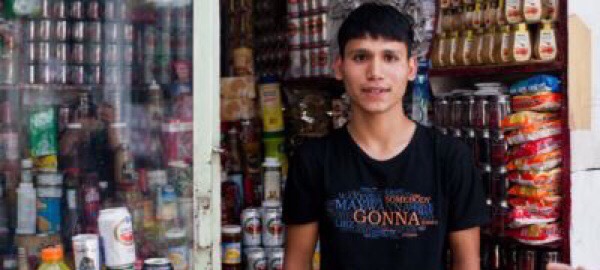Hot dogs. Bodybuilding. Leonardo DiCaprio’s Titanic hairdo. They’re all Western fads that have gripped the Afghan capital at some point in the past few years.
But these days it’s nonalcoholic beer, a popular thirst-quencher among young men eager to keep up with Western tastes in a country where alcohol is forbidden (but readily available, for a price).
The alcohol-free beer is affordable and widely sold in Kabul’s convenience shops and bazaars, thanks to supplies apparently smuggled off foreign military bases.
Farooq, a shopkeeper, says customers like nonalcoholic beer because they can taste something that’s Western but also respects Afghans’ strict Islamic values.
“It’s the Afghan version of alcohol,” he says, adding that he sells one can of Amstel 0.0% for 20 afghanis, or around $0.30. “People don’t feel bad drinking it.”
Kabul’s so-called Bush Bazaar, once a thriving market for U.S. military gear and foodstuffs, is among the big sellers of the stuff.
Iqbal, a 25-year-old shopkeeper there, says he sells dozens of cans of alcohol-free beer every day, mostly to young men and taxi drivers.
“Soda, for some, is too sweet, so they like the taste of the beer,” Iqbal says.
The vendors claim they get nonalcoholic beer from middlemen who smuggle the goods from international military bases.
The U.S. military — which at around 10,000 troops composes the bulk of a 13,000-strong NATO contingent still in the country — bans its soldiers from consuming alcohol in Afghanistan.
Alcoholic beer — whether taken from foreign bases, transport hubs, or shops catering to foreigners — can also be found at Bush Bazaar, unofficially named after former U.S. President George W. Bush, whose administration sent troops to Afghanistan in 2001.
But locals say those supplies have dried up some since the United States completed its withdrawal of the majority of its troops in December.
There is an abundance of hard liquor on the city’s black market, and many shops in Kabul’s affluent Shar-e-Naw neighborhood sell alcohol made in the West to foreigners and locals alike. Shopkeepers frequently bribe authorities to be allowed to continue their business, which can be lucrative with bottles of spirits selling for up to $200.
Kabul’s International Airport is another source of the illegal alcohol trade. For years, customs officials and airport staff have confiscated alcohol from passengers.
While Afghan citizens are not allowed to bring alcohol into the country, foreigners may bring a single bottle.
Kabul has also been flooded by cheaper, inferior-quality alcoholic beer and vodka from Central Asia.
But for many poor Afghans, nonalcoholic beer is still their drink of choice.
“Some of the other drinks here are not good quality,” says Mohammad Khan, a taxi driver, “but these beers are cheap and produced in the West.”

